
Brave the Elements
Park Chan-wook has never hidden the fact that he is a huge fan of Alfred Hitchcock – frequently highlighting Vertigo as the movie that got him into film making. Like many before him, perhaps most notably Brian De Palma, he has found clever ways to integrate influences from The Master of Suspense within his own work, the easiest comparison being Stoker... a loose remake of Shadow of a Doubt. But his most recent feature, Decision to Leave (2022), which he co-writes and directs, might even be more so – though crafted so subtly that you really need to know your Hitchcockian filmography to see where he is pulling from. Originally getting the idea from the song “Mist” by Jung Hoon Hee and Song Chang-sik, which fuses quite nicely with the above quotation from Confucius, this mystery crime thriller flits between the always mist filled skies of seaside Ipo and the mountainous city of Busan. Though insomniac detective Jang Hae-joon (Park Hae-il) resides in the former with his wife Jeong-ahn (Lee Jung-hyun), he lives six days a week in the latter – a place that he has moved to for his job.
-
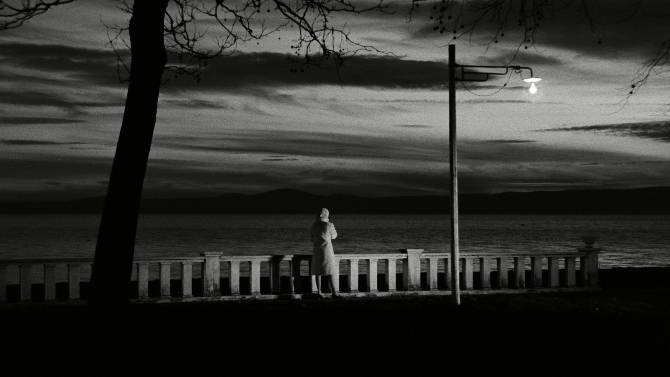
The Lady of the Lake
The PossessedApril 28, 2019An acclaimed author – disenchanted, empty, and broken. . . a man seemingly doomed to repeat his history, returns to a small Italian town that sits upon a lake (during its off season), looking for a maid he once loved – told she has committed suicide, an abstract mystery holds the man transfixed, living a story that could be his newest novel. In America, titled The Possessed (1965), around the world it is known as The Lady of the Lake, under either moniker, it is a fascinating Italian crossbreed directed by two very different individuals, journeyman Luigi Bazzoni (The Fifth Cord) and Franco Rossellini (his only directorial effort, he is the nephew of famed filmmaker Roberto Rossellini). . . a fascinating combination of lurid pop sensation and art film neo-realism.
-
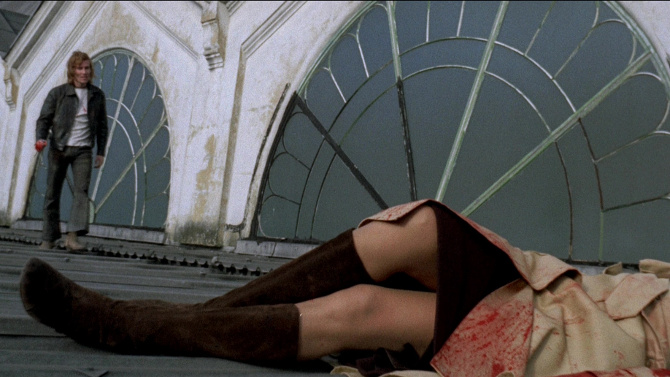
Shedding Your Skin
A Lizard in a Woman's SkinSeptember 28, 2018What looks to be an open and shut case, Lucio Fulci perverts a seemingly simple murder mystery with suspicious individuals and numerous red herrings in 1971's intriguingly titled giallo, A Lizard in a Woman’s Skin. Carol Hammond (Florinda Bolkan) is a bored London housewife, married to her staid husband, Frank (Jean Sorel), mother to an ungrateful step-daughter, Joan (Ely Galleani), and daughter to a famed lawyer and big time politician, Edmund Brighton (Leo Genn). Haunted by her subconscious, she often dreams that she has found her way over to her wild-child next door neighbour’s pad, Julia Durer (Anita Strindberg) – a sex-kitten known for throwing massive drug-fuelled orgies. Fulci perfectly encapsulates the situation with an amazing transition – visions of her dreams cut to her husband using a nut-cracker at one of their typically boring dinners, as well as a nicely used split screen shot.
-
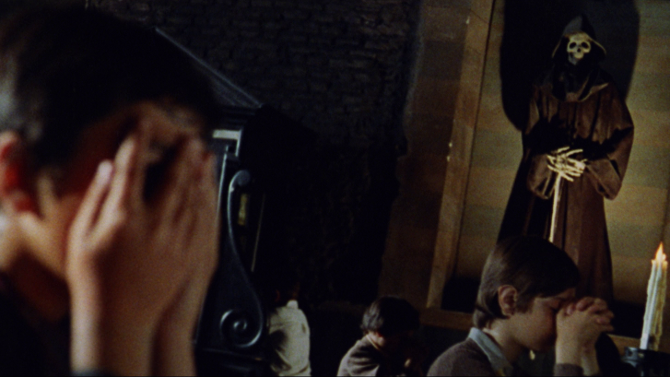
Sitting Ducks
Don't Torture a DucklingApril 8, 2018With a long list of suspects, Lucio Fulci’s Italian giallo Don’t Torture a Duckling revels in its mystery, a small town southern Italian caper that does not, in fact, contain any fowl play – though it does have almost every other aspect of foul play imaginable. Introduced to three tween boys, they are the type of scamps that get into all sorts of shenanigans. Spotting the arrival of some out of town prostitutes, they follow the trail to an abandoned house, keeping informed of all of the sordid action. They see Giuseppe Barra (Vito Passeri), a simple-minded peeping Tom enjoying the view, and he takes offense when they tease him.
-
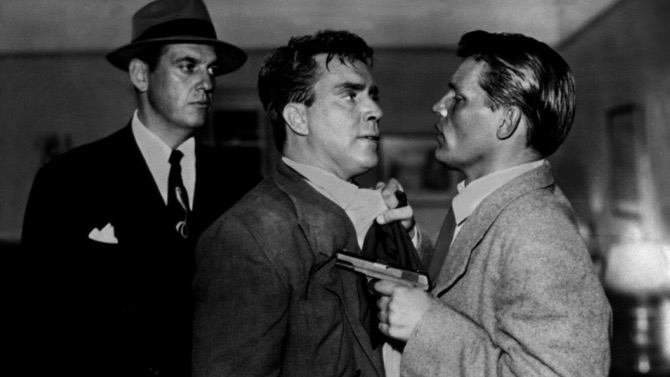
Death Becomes Him
D.O.A.November 12, 2017Talk about a hook of an opener – an extended tracking shot follows a man from behind as he enters a police station to report a murder. . . his own, and, rather interestingly, it seems as though the detectives were waiting for him. The man – Frank Bigelow (Edmond O’Brien); the film noir, D.O.A., a 1949 mystery directed by Rudolph Maté (a man who made several quality movies, though is better known for his superlative work as a cinematographer – think of Carl Theodor Dreyer’s two silent masterpieces The Passion of Joan of Arc and Vampyr, or later, Alfred Hitchcock’s Foreign Correspondent, Ernst Lubitsch’s To Be or Not to Be and Charles Vidor’s Gilda). Bigelow narrates his story to the men, transporting us back to the beginning of the tale.
-

Without Reservation
Wind RiverSeptember 5, 2017Sending a cold brisk current down the viewers’ spine, Taylor Sheridan’s Wind River is a darkly piercing mystery crime thriller with an old school western vibe. Providing the film with a unique spin much like another story he penned, Hell or High Water (which earned Sheridan an Academy Award nomination), the motion picture has the feel of a traditional western updated with modern topics and themes. Like a John Ford epic, you’ll find a posse searching for answers, characters chock full of bravery, a sort of wild lawlessness, and picturesque yet harsh locales, though this is not set in the blistering deserts of the nineteenth century wild west, but rather on an Indian reserve in present day Montana, where the chilling wind blows a substance no less forgiving – snow.
-
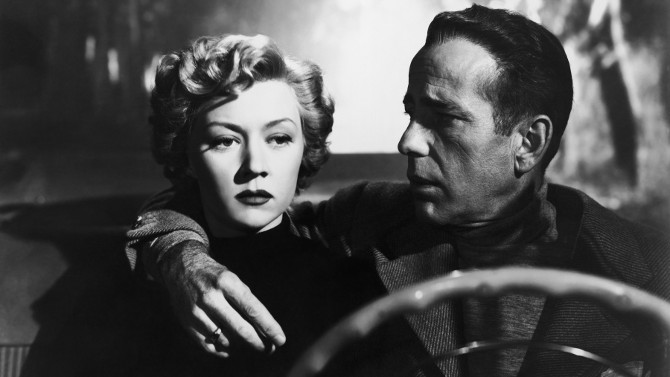
When Art Imitates Life
In a Lonely PlaceApril 25, 2017A man – lonely, laconic and quick to anger. A woman – cool, collected and in hiding. Both live in the same apartment complex in The City of Angels. Murder brings them together, but will it keep them together? Written by Andrew Solt and directed by Nicholas Ray, In a Lonely Place immerses us within the world of a Hollywood screenwriter, the rough-and-tumble, explosive Dixon ‘Dix’ Steele (Humphrey Bogart – who also produces the film); an apropos name to be sure. Struggling with a multitude of demons, he is quick to anger and even quicker to act. Despite not having a hit since before the war, he is given a solid opportunity by his agent, Mel Lippman (Art Smith), who asks him to adapt a novel. Seemingly uninterested, he invites the club’s hat-check girl, Mildred Atkinson (Martha Stewart. . . not that Martha Stewart), to his home to summarize the book for him (as she has just finished reading it). Following their business, he sends her on her way, directing her to where cabs usually gather nearby.
